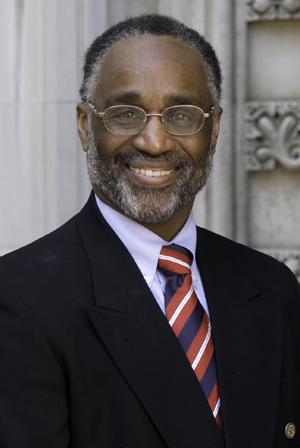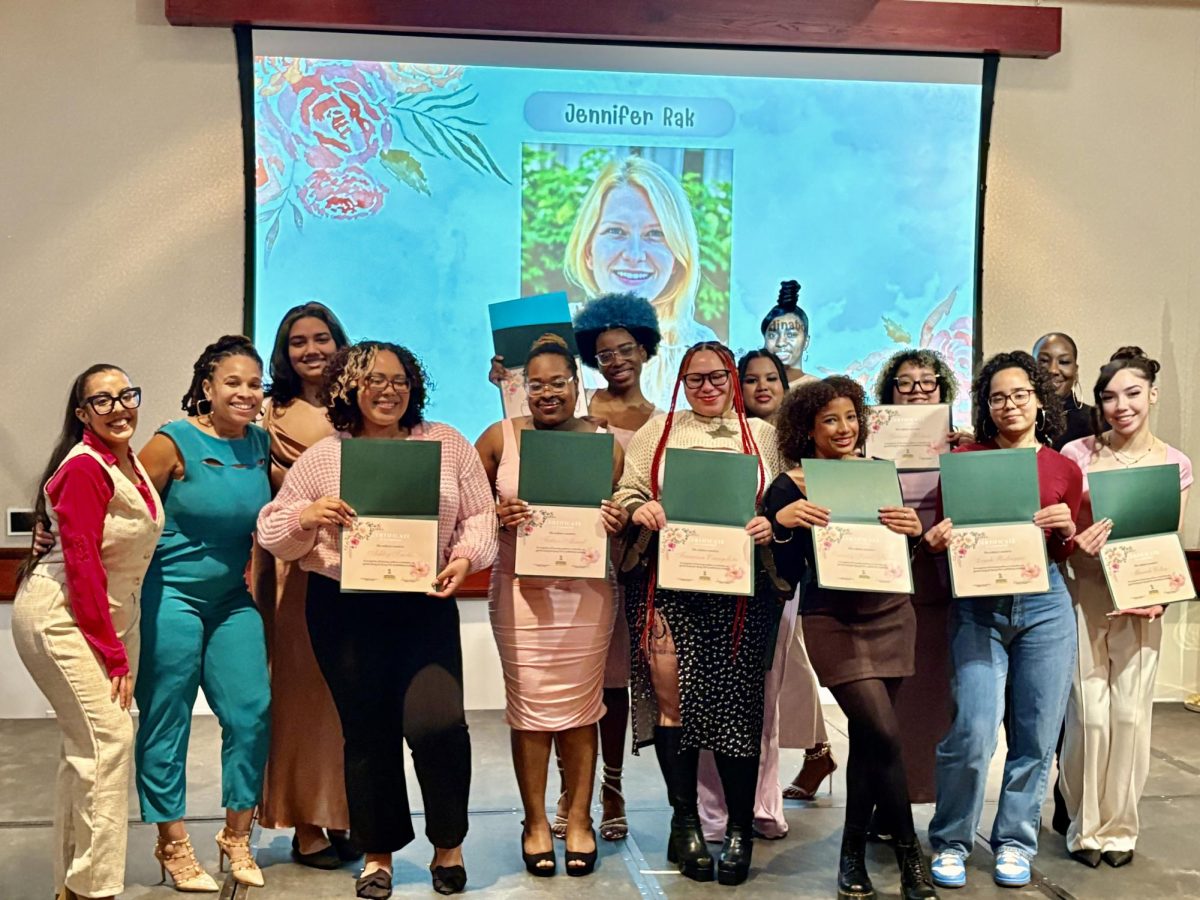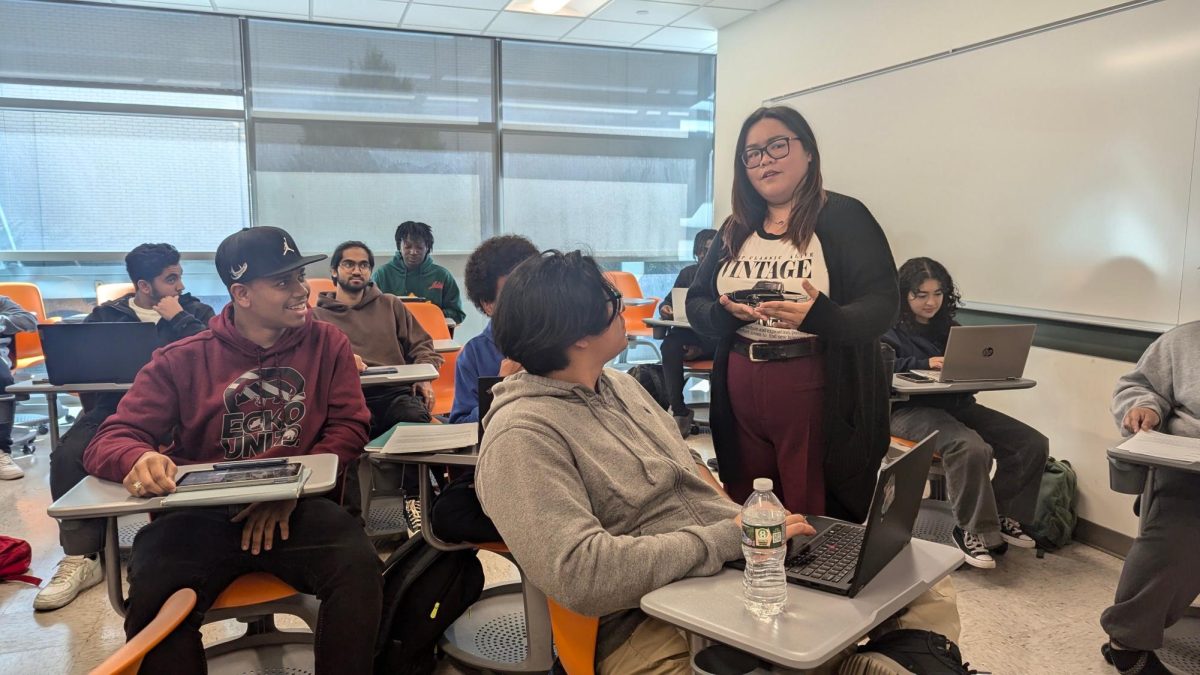By Monir Khilla –
Dr. Ansley LaMar, Chairman of the Psychology department, doesn’t seem the conspiracy theorist type. He never was. But, with the seats in the Gothic Lounge filling up quicker than the lingering smell of barbecue, Dr. LaMar warned the standing-room only crowd of the conspiracy against our minds.

The lecture, “The Conspiracy Against Black Minds,” was held to commemorate the ending of Black History Month with Dr. LaMar inspiring students to stop settling for mediocrity, stop taking easy professors, and to defy the conspiracies that have been stacked against their minds. Dr. LaMar also challenged administrators to raise the standards they have set for their students.
When Dr. LaMar’s was in the fourth grade, his teacher Mrs. Stein walked into his class one day and asked her students “If you think you’re stupid, please stand up.” After repeating the question three times, Dr. Lamar’s friend Johnny stood up. “You think you’re stupid?” asked Mrs Stein. “No” replied Johnny, “But I don’t want you to be the only one standing.”
Through this funny, but heartwarming, anecdote, Dr. LaMar went over the industrialist oppression of the black mind. Long after the Civil War, blacks were still being discriminated against and arrested just because they wanted new jobs. The debt and fines were too large for them to pay, forcing them to work off their debt in labor.
“We know in 1919 George Ferguson had scientific proof that black people could only do manual labor. But you know what? Black people still studied the arts, humanities, sciences, and mathematics anyway!” exclaimed Dr. LaMar. “Black people still insisted going on to college.”
The barriers against blacks going to school eventually came down, but Johnny’s father insisted that now there was a more dangerous conspiracy. Johnny’s father told him “Now that the barriers are gone, I wonder what they’re going to teach you. I wonder whether they will maintain high education standards.”
The fear was that now there was a conspiracy to lower standards. As the standards were becoming lowered and lowered, Dr. LaMar wondered about how all the students who were so disadvantaged still succeeded. The Vietnamese student who didn’t speak English, or the student who, despite being arrested for prostitution, still went to college and thrived.
“Our students don’t work if they don’t have to. I also know that if we raise our standards, our students meet that standard,” said Dr. LaMar.
“We’ve lowered our standard to the point where students feel entitled. They don’t choose to study to get a good grade,” said Dr. LaMar, “I’m stunned students believe they can work full time, go to school full time, have a full social life, and still get good grades! Someone taught them that it was okay to negotiate with professors in order to get good grades.”
But, what can students do to defy these conspiracies?
Dr. Lamar had many words of advice. “Go to class everyday and be an active participant and be an active participant because you have read the material. You should also visit your professors during their office hours, how many students do that? Visit your professor and ask him what their expectations are, then exceed them.”
More importantly, however, students need to stop “chasing A’s.”
“If you chase the A, it will run away,” said Dr. LaMar, “But if you write a vision statement for yourself on where you see yourself in five years, at the beginning of every semester, you can go back and review those essays at the end of the semester.”
In closing, Dr. Lamar challenged the administration and university to help students.
“I think every student who comes to NJCU should go to the OSP program or TLC program and if we cannot supply those services to all of our students, we need to stop recruiting students that we can’t accommodate.”
The burden isn’t just on students alone, but Dr. LaMar says he envisions the faculty members to come together and talk about the shared vision of the university.
“I would love for us to develop a trust relationship where we could just show up to each others classes, unannounced, and give each other feedback on our teaching style, content, and etc..”
Dr. LaMar also expressed concern over professors who don’t challenge students.
“I think all our students need to be challenged, adamantly,” said Dr. LaMar, “I think as faculty members we need to come together and correct each other, I think education is about being challenged.”
Dr. LaMar feels that there also needs to be an across-the-board increase in standards for students. When standards are increased, however, it means the professors have to help students meet them.
“Classes with three credit classes have to be for four hours, three hours for content and one hour on how to figure out and engage that content,” said Dr. LaMar.
He also feels that professors have to “adopt” five students a semester and coach them for a semester. For one hour a week professors would teach students how to negotiate the system.
“If all of the 300 full-time faculty did that, we’d help 1,500 students a semester. 1,500 students who now know how to negotiate the system, know how to study, know how to improve, and know that there is somebody holding them accountable,” said Dr. Lamar.
Dr. LaMar feels that ultimately the responsibility falls on students.
“Administration can open the locks. Faculty can open the door. But you, my dear students, have to step through it.”








